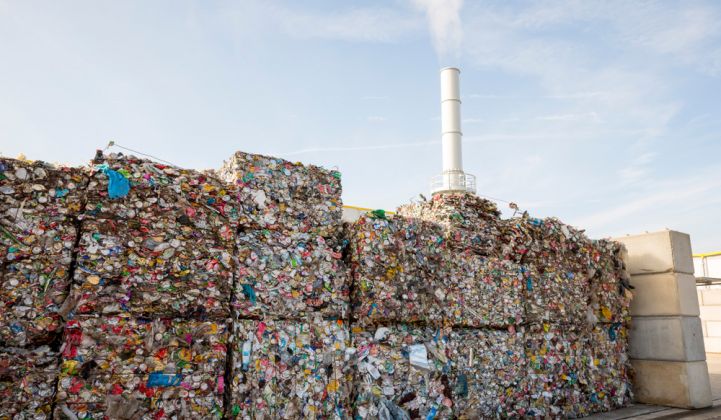The quest continues for energy sources to power bitcoin mining.
The gigawatt-guzzling cryptocurrency was this month estimated to be churning through more energy a year than midsize nations such as Austria, Chile or the Czech Republic, according to Digiconomist’s Bitcoin Energy Consumption Index.
This thirst for power has led to a number of novel — some might say madcap — ideas for low-carbon energy generation linked to bitcoin mining. GTM has already reported on some of them.
In Australia, for example, IOT Group and Hunter Energy are planning to offer low-cost energy for blockchain companies with clean generation sources such as PV and batteries. To get off the ground, though, the companies are initially planning to restart one of Australia’s dirtiest coal plants.
Elsewhere, a company called Soluna has unveiled plans for a $2.5 billion, 900-megawatt off-grid wind farm in the Sahara, which will be used to provide energy for cryptocurrency mining. But tech experts have questioned whether backers would support a project that only provides intermittent energy and happens to be located in a disputed territory.
Here are three more crypto mining energy concepts that are similarly original, to say the least.
4New: A rubbish idea for cryptocurrency mining?
London, U.K.-based 4New is working on a plan that would see the energy wasted on crypto mining coming from waste itself. The company notes that around 2 billion tons of garbage are thrown away globally every year, and it is looking to use some of that waste to generate electricity.
Its plan is to take up to around 100,000 tons of waste a year and put it through anaerobic digesters for energy production that can “either be leveraged for a national grid or applied to operate crypto mining processes,” according to a spokesperson.
Investors don’t seem to think the idea is rubbish. 4New this year raised $30 million in equity from investors including Mirach Capital and then pulled in an extra $12 million from an initial coin offering (ICO).
“They basically used the capital raised to purchase existing waste-to-energy plants, the power from which they will use to mine bitcoin,” said Colleen Metelitsa, a grid edge analyst with Wood Mackenzie Power & Renewables.
4New has two operational power plants that have begun processing household waste and is in the process of adding a third site, according to its company website.
Envion: Plugging in to spare renewable capacity around the world
Everyone knows wind and solar power can be fickle. One minute it could stop altogether, the next it could be producing so much that power prices go negative. One of these extremes is great for crypto miners, the other isn’t.
The Berlin-based, Swiss-registered blockchain company Envion came up with a neat idea to deal with the situation: create a mobile crypto mining data center that could be plugged in to whichever power plant was producing the lowest-cost energy in a given region.
The firm planned to take advantage of existing solar overcapacity in Europe and buy electricity cheaply from PV plant owners with underutilized assets.
Things got off to a good start for the company when it raised $100 million from around 30,000 investors in what is said to have been Germany’s biggest ICO, held at the end of last year.
But the Envion dream flamed out when the company’s founder became embroiled in a high-profile legal spat with the CEO. Whether Envion’s idea might work is still open to question, but it won’t be Envion that takes it to market.
As Handelsblatt reported in September: “The company promised shining returns by coupling renewable energy with blockchain technology [but] investors who gave the company $100 million are now left with a near-worthless virtual currency.”
Blockchain Power Unit: Putting computers into wind turbine towers
Another German blockchain company, Blockchain Power Unit, is also hoping to plug crypto mining computers directly into renewable energy plants. But it is planning to get closer than even Envion envisaged, by putting its computers inside wind turbine towers.
Blockchain Power Unit is selling itself to wind farm owners that will lose out when subsidies under Germany’s Renewable Energy Sources Act (Erneuerbare-Energien-Gesetz, or EEG in German) are phased out in 2020.
The company says 22,400 turbines across the country could lose up to 65 percent of their revenue. It plans to use around 20 percent of each turbine’s output to power computers for crypto mining and other computing applications.
“The total proceeds are high enough to enable wind power plants to continue operating profitably even after the EEG remuneration has been eliminated,” claims Blockchain Power Unit on its website.




